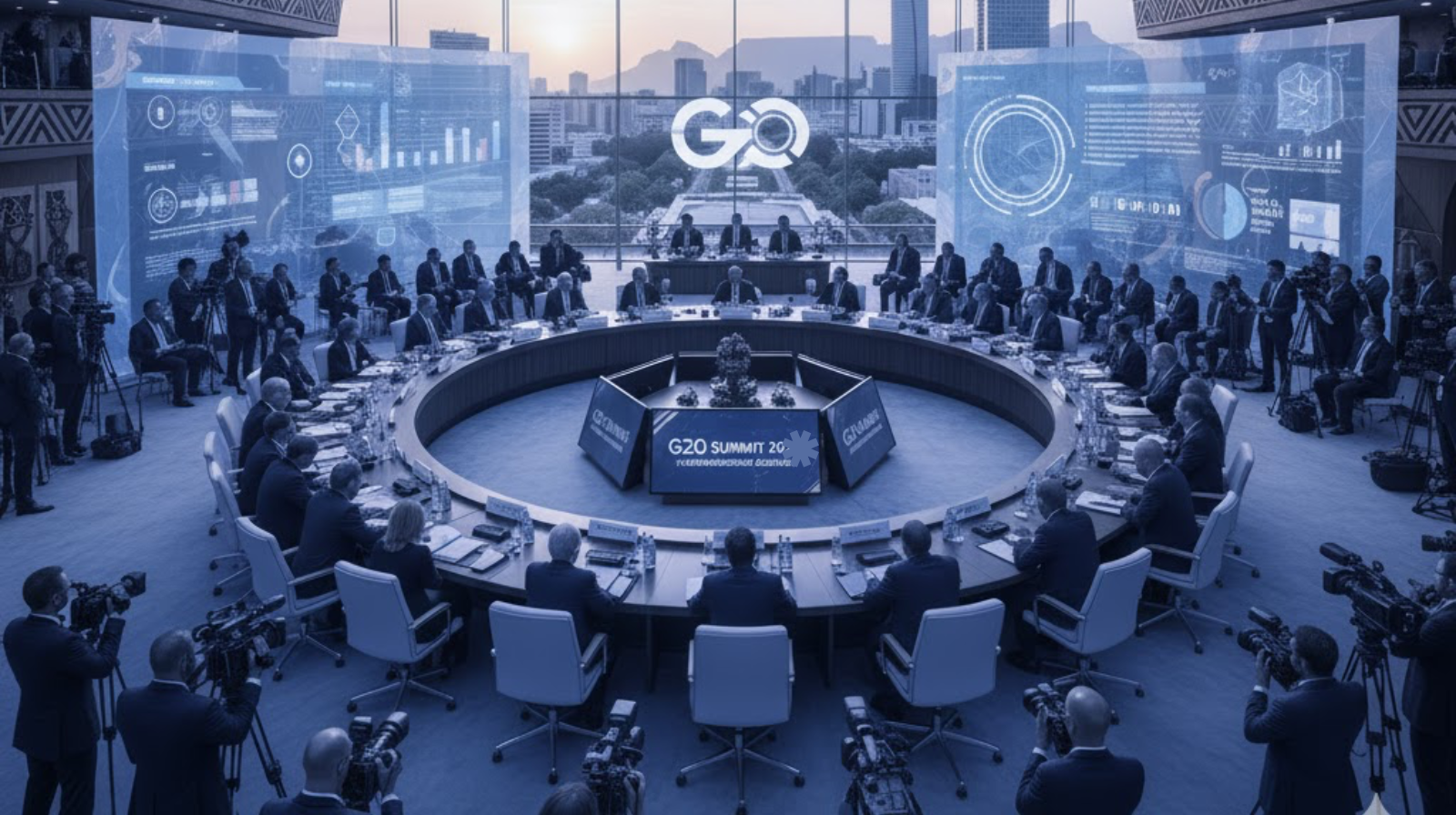
The Group of Twenty (G20), comprising the world’s major developed and developing economies, is often viewed through the lens of geopolitics and ‘elite’ consensus. However, as the G20 presidency rotates, particularly to nations from the Global South like South Africa, the forum’s focus shifts to address fundamental issues of development finance, debt sustainability, and global economic inequality.
A recent discussion on Power987fm featuring host Johan Prins and Professor Danny Bradlow from the University of Pretoria highlighted the crucial, yet complex, work South Africa is undertaking as G20 Chair. Far from being just a diplomatic photo-op, the G20 platform is being leveraged to push for measurable global change, even amidst political headwinds.
The G20: A Complicated Nexus of Power and Progress
The G20’s primary function is to coordinate global economic and financial policy. But as Professor Bradlow notes, it’s not a formal, binding structure—its power lies in the consensus and subsequent actions taken by its members. This makes the Chair’s role critical in setting the agenda and managing disagreements.
South Africa’s presidency, guided by the theme of Solidarity, Equality, and Sustainability, has centered its priorities on issues vital to the African continent and the broader Global South, including:
-
Debt Sustainability for low-income countries.
-
Mobilising finance for a just energy transition.
-
Harnessing critical minerals for inclusive growth.
-
Strengthening disaster resilience.
This focus seeks to broaden the G20’s conversation beyond the immediate concerns of Northern economies.
Navigating Geopolitical Obstacles: The US Factor
The recent political uncertainty surrounding the participation of the United States, including reports of ceasing G20 cooperation, has cast a shadow. While this non-cooperation can be seen as an attempt to undermine the host country’s efforts and agenda, Professor Bradlow advises against “hyperventilating.”
The Impact of Non-Cooperation:
-
Complicates the Process: The US is part of the G20 Troika (past, present, and future presidents: Brazil, South Africa, and the US), so its non-participation complicates coordinating the agenda and future discussions.
-
Opportunity for Consensus: Ironically, the US’s absence on contentious topics like climate change could make it easier for the remaining 19 members to reach agreement and issue a strong communiqué.
-
Agenda Influence: The outgoing Chair (US) has significant influence over the next year’s agenda. A hostile US Chair could make it difficult to advance current agreements.
Ultimately, the consensus among the other 19 members holds considerable weight. As Professor Bradlow suggests, if the other members agree, they can work around one recalcitrant member to implement principles and achieve progress.
Plugging the Leak: The Core Fight for Development Finance
At the heart of South Africa’s agenda is the complex issue of development finance and sovereign debt. This involves a delicate balancing act between debtor countries seeking better terms and creditor nations managing risk and ensuring funds are used effectively.
Key Areas of Negotiation:
-
Debt Relief and the Common Framework:
-
Developing nations require more favourable terms: lower interest rates, longer repayment periods, and concessionary finance.
-
The G20 Common Framework was established to coordinate debt restructuring for low-income countries (like Zambia and Ethiopia) across various creditor groups—including the traditional Paris Club (official creditors) and new major creditors like China, as well as private sector lenders.
-
A major principle is comparability of treatment to ensure official creditors don’t take a ‘haircut’ just to pay off commercial creditors.
-
-
Domestic Resource Mobilisation (DRM) and Illicit Financial Flows (IFFs):
-
Creditor concern often focuses on whether debtor countries are collecting adequate domestic taxes.
-
A major challenge is Illicit Financial Flows (IFFs)—money illegally earned, transferred, or used, including through mechanisms like trade mis-invoicing and abusive transfer pricing.
-
Africa is losing an estimated $80 billion a year through IFFs. This massive leakage significantly undermines DRM efforts and necessitates external borrowing. The G20 platform is being used to push for stronger international cooperation and enforcement to curb these flows, which could otherwise fund much of Africa’s development needs.
-
-
Austerity vs. Development:
-
The discussion touched on the Argentine case, where a government is implementing significant austerity measures. While austerity can help a government “live within its means,” the immediate social costs (cuts to health and education) can be severe.
- For the G20’s African members, the focus remains firmly on securing predictable and affordable development finance to fund sustainable long-term growth.
-
The Bigger Picture: Giving Voice to the South
The South African G20 presidency, which follows the chairships of Indonesia, India, and Brazil, represents a powerful movement to place the priorities of the Global South firmly on the global agenda.
Beyond the financial and development topics, the G20 remains a crucial venue for dialogue on global crises, although consensus on highly politicised issues like Ukraine, Russia, and Palestine remains a major challenge for the final communiqué.
The presidency offers a vital opportunity to shape the global economic narrative, proving that the G20 is not just an ‘elite club’ but a platform that can and must drive real, inclusive progress for all nations.


